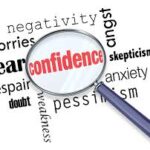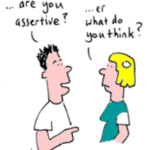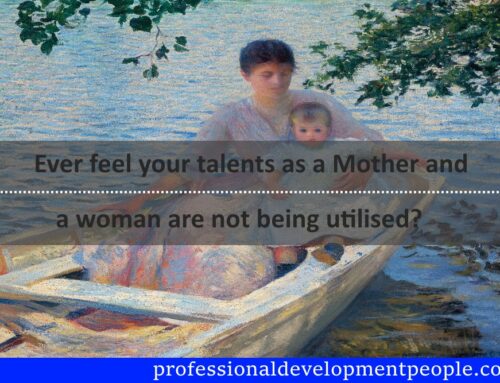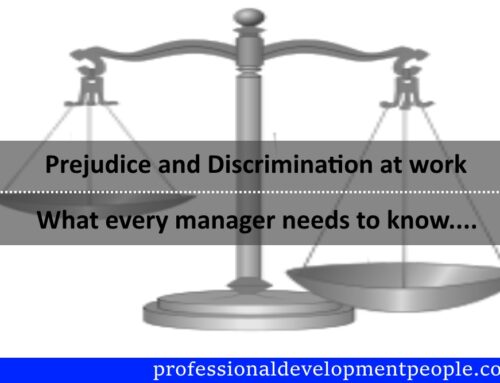Today I tweeted and asked what is the difference between self esteem, self confidence and assertiveness. These are key attributes that everyone needs in order to feel positive about themselves and to allow you to establish and maintain good working relationships with others, regardless of whether these are business or personal relationships.
Self esteem is “a realistic respect for, or favourable impression of oneself, or self-respect” , and at times could be “an inordinately or exaggeratedly favourable impression of oneself” @Dictionary.com.
Do you have a healthy respect for yourself? Do you recognise your favourable qualities? If you do, you can refer to these qualities when you are feeling low, rejected or when someone has made a negative comment about you. The problem occurs if you have a negative self-image and so low self esteem. If you think you’re unattractive, too fat, too thin, aren’t very clever etc, then you have no positive reserves to fall back on, and this can stop you taking risks or pushing yourself forward, whether in a job or a relationship. 
In my career of teaching, training and coaching, I have used an idea of Jenny Mosley’s (Quality Circle Time), to get people to really think about how they see themselves. Take a moment now, and think of all the positive things about you and imagine each one as a gold coin. Do you have a hefty pile in your hand or only one or two to fall back on. If the latter is the case, why would you take a risk and possibly fail? All it would do, is confirm that you were unattractive, s/he wouldn’t like you etc. If it was the former, then you would most probably say oh well, it was worth a try and dust yourself off and move on!
Self confidence is “realistic confidence in one’s own judgement, ability, power etc” or “an excessive or inflated confidence ” in oneself @Dictionary.com. I was discussing the ability to come across as confident, yet still have low self esteem, and low self-confidence in some areas of life, with a group of people the other day, and each outlined an area where they felt they wouldn’t succeed in, including having an intimate relationship with someone. From an outsiders’ perspective, these women appeared confident and assertive in their ability to take on challenges, most had well paid jobs, and made sound judgements regarding work and areas of their personal life. However, each was quick to point out that “I’ve never been very good at…”, or “I can’t…”. and quickly became irritated or despondent when questioned further and encouraged to see beyond this potential stumbling block. 
You may have low self esteem in the area of relationships, but be very self confident in other things such as your ability to organise a house move, or to negotiate the best price when buying a new car. You KNOW and TRUST in your ability and judgment in these areas, and will appear confident to others and they will assume this confidence applies to all areas of your life. Where are you less confident? Do others know about this? If not, how do you mask it and is it to your detriment?
 Assertiveness focuses on your actions, words and interaction with another person. Do others see you as confident, self-assured, or bordering on being aggressive. There is a fine line between assertiveness and aggression and often it is down to the other person’s perception of you as to which type of behaviour they think they have seen. It is very subjective and is a key skill that can be taught and is often a component of company management training programmes, as well as individual coaching.
Assertiveness focuses on your actions, words and interaction with another person. Do others see you as confident, self-assured, or bordering on being aggressive. There is a fine line between assertiveness and aggression and often it is down to the other person’s perception of you as to which type of behaviour they think they have seen. It is very subjective and is a key skill that can be taught and is often a component of company management training programmes, as well as individual coaching.
Assertiveness is knowing your rights and responsibilities and standing up for them. This means understanding the potential consequences of your actions, and in my next blog, I will explore some of the rights and responsibilities we all have. Crucially, assertiveness is also about understanding that other people have rights and making sure you don’t violate those.




